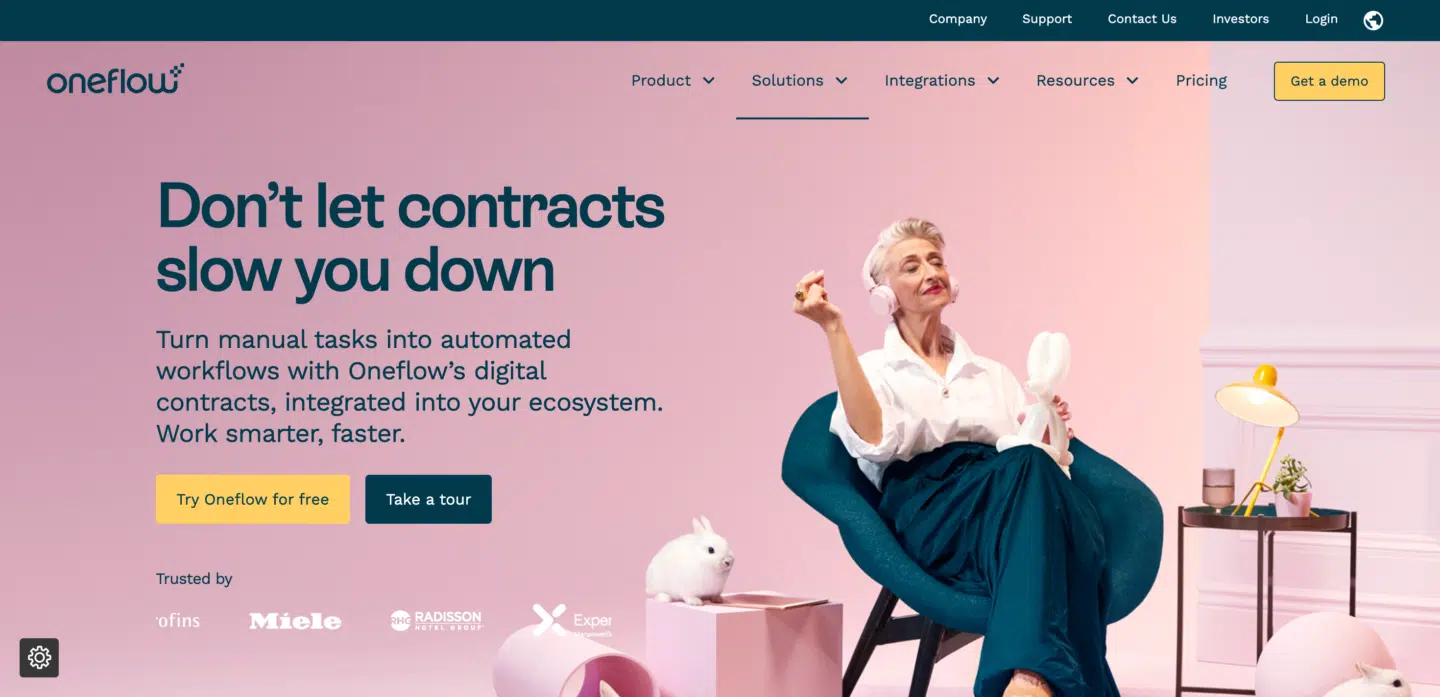In today’s competitive job market, providing a great candidate experience is essential for attracting and retaining top talent. When candidates have a positive experience throughout the recruitment process, they are more likely to accept job offers and become brand advocates. In this article, we will explore the 10 best practices for creating a great candidate experience.
Understanding the importance of candidate experience
The candidate experience refers to the interactions and perceptions that candidates have when applying for a job and going through the recruitment process. It encompasses everything from the initial application stage to the final decision-making process. A positive candidate experience can significantly impact an organization’s employer branding, while a negative experience can result in the loss of potential hires and damage to the company’s reputation.
Read also: Flow through the recruitment process

The role of candidate experience in recruitment
Creating a positive candidate experience is not just a nice-to-have; it is a strategic imperative for organizations. Candidates who have a positive experience are more likely to accept job offers, refer others to the company, and even become customers. On the other hand, candidates who have a negative experience may share their frustrations with others, causing potential talent to think twice before considering opportunities with the organization.
How candidate experience impacts employer branding
Candidate experience plays a crucial role in shaping an organization’s employer branding. It is an indicator of how the company values its potential employees and sets the tone for future interactions. When candidates have a positive experience, they are more likely to view the company as an employer of choice and advocate for its values. Conversely, a negative experience can tarnish the company’s reputation and make it challenging to attract top talent.
Let’s delve deeper into the impact of candidate experience on employer branding. Imagine a scenario where a candidate applies for a job at a company. They go through a seamless application process, receive timely updates on their application status, and are treated with respect and professionalism throughout the recruitment process. This positive experience leaves a lasting impression on the candidate, making them more likely to view the company as an employer that values its employees.
Now, consider the opposite scenario. A candidate applies for a job and receives no response for weeks. When they finally hear back, it’s a generic rejection email with no explanation. This negative experience leaves the candidate feeling undervalued and frustrated. They may share their experience with friends, family, and even on social media, damaging the company’s reputation and making it harder to attract top talent in the future.
Furthermore, candidate experience extends beyond the recruitment process itself. It includes the onboarding experience for new hires. When new employees feel welcomed and supported from day one, they are more likely to become engaged and productive members of the organization. On the other hand, a lackluster onboarding experience can lead to disengagement and a higher likelihood of turnover.
Read also: What makes for an effective recruitment strategy?

Enhancing communication throughout the recruitment process
Effective communication is a cornerstone of a great candidate experience. Clear and timely communication helps candidates feel valued and informed, reducing stress and uncertainty. Employers should strive to provide accurate and transparent information throughout the recruitment process.
In today’s competitive job market, where candidates have multiple options, the way employers communicate can make a significant impact on their employer brand. A positive communication experience can leave a lasting impression on candidates, even those who may not ultimately be selected for the role. Therefore, investing time and effort in enhancing communication strategies is crucial for attracting top talent.
The power of clear, consistent communication
Candidates appreciate clarity and consistency in their interactions with employers. From job descriptions to interview scheduling and feedback, it is essential to communicate all necessary information in a concise and understandable manner. Keeping candidates informed of their status throughout the process and providing updates on next steps helps build trust and engagement.
Moreover, clear communication can also help manage candidate expectations. By setting clear expectations regarding the recruitment timeline, selection process, and potential outcomes, candidates are better prepared and can make informed decisions about their job search. This transparency fosters a positive candidate experience, regardless of the final hiring decision.
Leveraging technology for effective communication
The use of technology can make communication more efficient and accessible for both candidates and employers. Tools such as applicant tracking systems and automated email updates can streamline the process and ensure important information reaches candidates in a timely manner. However, it is crucial to strike a balance and maintain a personal touch in communication to avoid making candidates feel like faceless entities.
Furthermore, technology can also enable innovative communication methods, such as video interviews and virtual recruitment events. These tools not only enhance the candidate experience by offering flexibility and convenience but also showcase the employer’s commitment to embracing digital transformation in recruitment practices. By leveraging technology effectively, employers can stay ahead in the competition for top talent while delivering a seamless and engaging recruitment experience.
Read also: How Oneflow automate the entire recruitment process?
Streamlining the application process
One of the most critical touchpoints in the candidate experience is the application process. Making it easy for candidates to apply increases the chances of attracting qualified individuals and ensures a positive start to the recruitment journey.
Simplifying job applications
Long and complex application forms can deter talented candidates from completing the process. Simplifying the application form by requesting only essential information reduces barriers and improves the overall experience. Employers should evaluate their application forms regularly to identify unnecessary fields or steps that can be eliminated.
The role of mobile-friendly applications
In today’s mobile-driven world, optimizing the application process for mobile devices is paramount. Candidates should be able to apply seamlessly from their smartphones or tablets without encountering technical issues. A mobile-friendly application process demonstrates an organization’s commitment to adapting to candidates’ preferences and ensuring a smooth user experience.
Read also: Automating the recruitment process: Top 5 ways

Providing constructive feedback
Constructive feedback is invaluable for candidates, whether they receive an offer or not. It shows respect for their time and effort and provides them with insights to improve their future job search. Timely and well-articulated feedback can leave a lasting positive impression and contribute to a great candidate experience.
The importance of timely feedback
The sooner candidates receive feedback, the better. Delayed or generic responses can leave candidates feeling disheartened and disconnected from the process. Providing constructive feedback within a reasonable timeframe demonstrates the organization’s commitment to continuous improvement and candidate development.
Tips for delivering constructive feedback
When delivering feedback, it is essential to focus on specific observations and provide actionable suggestions for improvement. This approach helps candidates understand how they can grow and excel in their future endeavors. Additionally, personalizing the feedback to each candidate’s strengths and areas for development shows that the employer has invested time and effort in their evaluation.
Read also: How Oneflow can help improve your recruitment processes?

Creating a comfortable interview environment
Interviews are a critical stage in the candidate experience, and creating a comfortable and welcoming environment can significantly impact how candidates perceive the organization and their interest in the role.
Preparing candidates for interviews
Prior to the interview, candidates should receive all necessary information, such as date, time, location, and who they will be meeting. Providing background information on interviewers and the interview format helps candidates feel more prepared and confident. Additionally, employers should offer resources or guidance on what to expect during the interview process to ease candidates’ anxiety.
The impact of the physical environment on candidate experience
The physical environment where interviews take place can convey a lot about the company culture and values. Ensuring that interview rooms are clean, comfortable, and equipped with the necessary technology sends a positive message to candidates. Employers should also pay attention to the behavior of interviewers, fostering a respectful and inclusive atmosphere that aligns with the organization’s values.
The key takeaways
Implementing these ten best practices for a great candidate experience can help organizations attract and retain top talent, enhance employer branding, and create a positive impact on the overall recruitment process. By prioritizing candidate experience, companies demonstrate their commitment to building strong relationships with candidates and fostering a culture of excellence.







